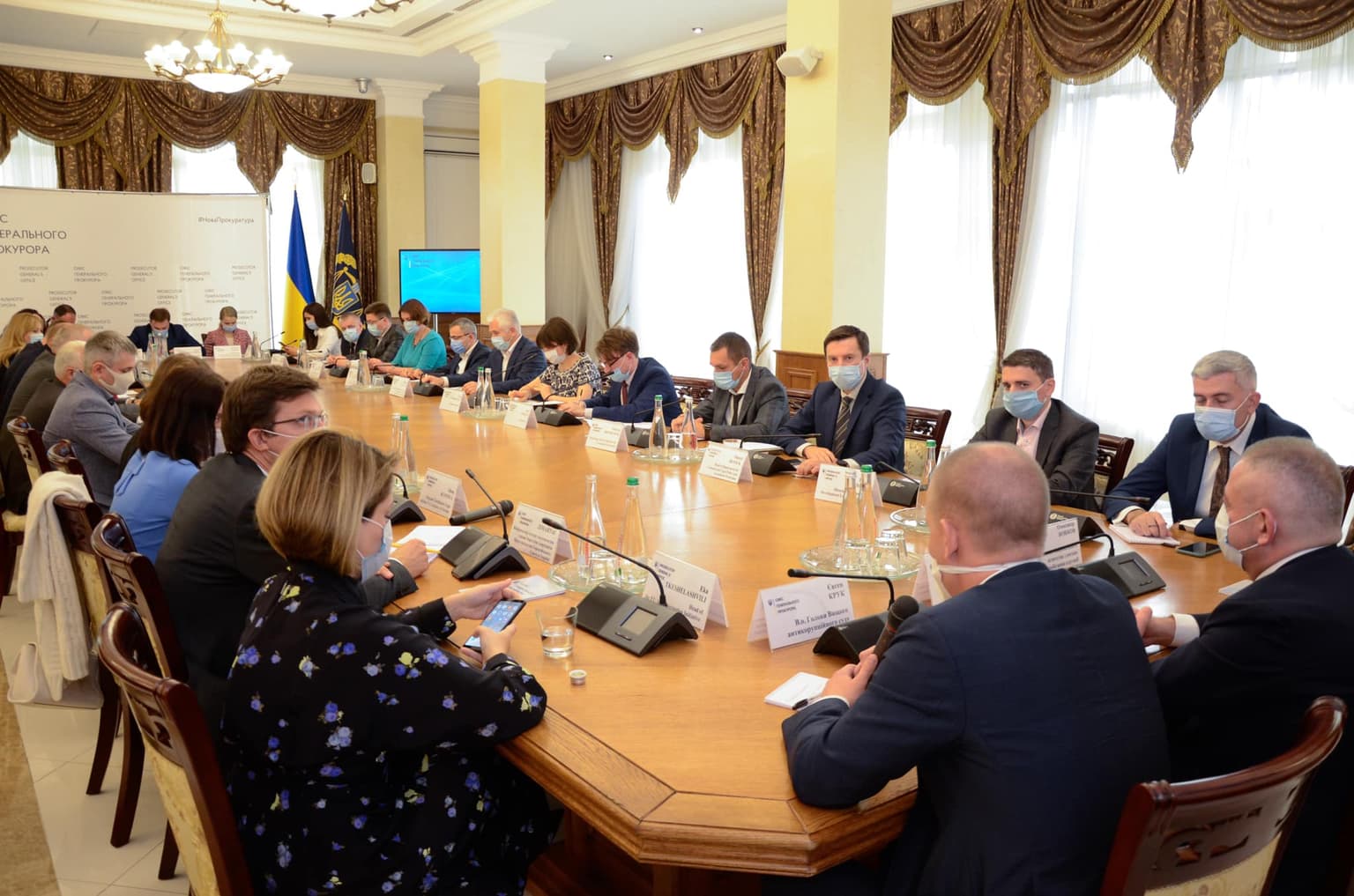Controversial court's new ruling might cancel anti-corruption prosecutor contest

The selection of the country’s top anti-corruption prosecutor has come under the threat of being canceled by Ukraine's most controversial court.
On Dec. 20, the Kyiv District Administrative Court ruled that the contest must be shut down. The court said in a statement that the selection committee lacks the authority to establish the rules of the contest, making it invalid.
Since Kyiv District Administrative Court is the court of first instance, its decisions do not take legal effect until an appellate court upholds it. However, experts argue that the pro-government members of the selection committee might use the court's decision as a legal basis to sabotage the contest.
The court's decision came only a day before the last meeting of the selection committee that chooses the special anti-corruption prosecutor. On Dec. 21, it is set to choose one of two finalists for the job.
The anti-corruption prosecutor oversees all cases pursued by the National Anti-Corruption Bureau, arguably the country’s most effective corruption-fighting body. This important seat has been vacant since August 2020 when Nazar Kholodnytsky resigned.
The selection of Kholodnytsky's successor has been stalled for months, and many activists believe it is being sabotaged by the President's Office.
The decision of the Kyiv District Administrative Court, led by Ukraine's most controversial judge Pavlo Vovk, didn't come as a surprise to experts.
“This scenario has been described over a year ago,” said Mykhailo Zhernakov, the director of legal think tank Dejure. “It’s obvious to us it was timed exactly so that some of the selection committee members can explain why they don’t want to make a decision.”
The contest has been a key requirement of Ukraine’s commitments to Western partners and donors. The government's failure to fulfill these promises also comes at a dangerous time: With Russia's looming large-scale invasion of Ukraine, the country needs Western support more than ever,
“Cancelling the competition at the eleventh hour is outrageous and the G7 and International Monetary Fund out to be raising holy hell,” said Melinda Haring, deputy director of the Atlantic Council’s Eurasia Center.
Activists and lawyers see the hand of President Volodymyr Zelensky behind the court’s decision. The president’s office doesn’t want a chief anti-corruption prosecutor to be chosen if it can’t control them, activists believe.
Zelensky’s office has denied the allegations. The president has said he wants the prosecutor to be chosen by the end of the year.
Constant stalling
Selection panel meetings have been constantly delayed and disrupted.
The panel that chooses the prosecutor consists of four international experts and seven members chosen by parliament.
Ever since international experts vetoed a candidate favored by the President’s Office in June, pro-government panel members have disrupted numerous panel meetings by failing to attend.
In a comment to the Kyiv Independent, Kateryna Koval, head of the selection panel, previously blamed foreign experts for disrupting panel meetings. The foreign panel members denied Koval’s allegations, asking her to apologize. Drago Kos, one of the foreign experts on the panel, has also said that the panel endured political pressure.
The non-governmental Anti-Corruption Action Center believes the President’s Office has been blocking panel meetings because it does not want an independent prosecutor to be chosen.
Only two candidates are left: frontrunner Oleksandr Klymenko, a NABU detective, and prosecutor Andriy Synyuk.
The Anti-Corruption Action Center has praised Klymenko for investigating top officials, including Zelensky’s deputy chief of staff Oleh Tatarov. Synyuk is a direct subordinate of Prosecutor General Iryna Venediktova, which raises concerns about his independence.
The Kyiv District Administrative Court’s decision was one of the ways legal experts expected it to interfere with the contest. Lawyer Vitaliy Tytych says there is absolutely no legal merit to the decision, which is completely political and lacks common sense.
“This is not a court decision as such, it’s the use of the powers of the court with criminal aims,” he said.
Judge Vovk leading the court was charged with corruption and obstruction of justice. Nevertheless, he managed to avoid prosecution.
The judge has been cooperating with Zelensky since 2019, according to the National Anti-Corruption Bureau's audiotapes of him speaking with Zelensky's allies.
Vovk’s court has jurisdiction over national institutions. Activists said Vovk can block judicial reform that Zelensky doesn’t want. In turn, he might get protection from the authorities.
Zhernakov said the Dec. 20 court decision does not oblige anyone to do anything. But it will give pro-government selection committee members enough of an excuse to continue stalling indefinitely.
Besides mere stalling, he says there are signs that the president’s office wants to eliminate the legal grounds for the top anti-corruption prosecutor’s competitive selection altogether.
Ukraine’s commitments
The selection of an independent prosecutor, free from political influence, has been a key requirement of Ukraine’s Western partners and donors.
Judicial reforms and the anti-corruption prosecutor selection according to best global practices were the first two items on Zelensky’s memorandum with U.S. President Joe Biden, signed in September.
To receive the IMF's latest $700 million loan tranche, Ukraine promised to complete the contest, choose a new anti-corruption prosecutor and do an external audit of their office by the end of November. By the end of March, Ukraine is supposed to improve the legislation on how the prosecutor is chosen.
Zhernakov said it’s a dangerous time to be backsliding. Russia is massing approximately 100,000 troops on Ukraine’s border and in occupied territories in preparation for a possible invasion in January or February. Ukraine needs the support of Western powers if it’s going to survive.
“This is very not good in the face of Russian aggression when countries are now considering to what extent they should aid Ukraine,” Zhernakov said. “It’s sending a signal that we’re not that different from the country that’s attacking us.”
Haring said that with Russia continuing to up the ante and threatening war against Ukraine, “Kyiv is betting that it can get away with massive backsliding now, and it likely can."










